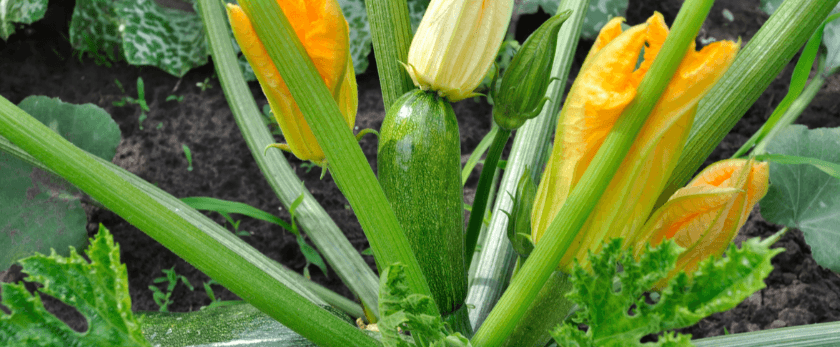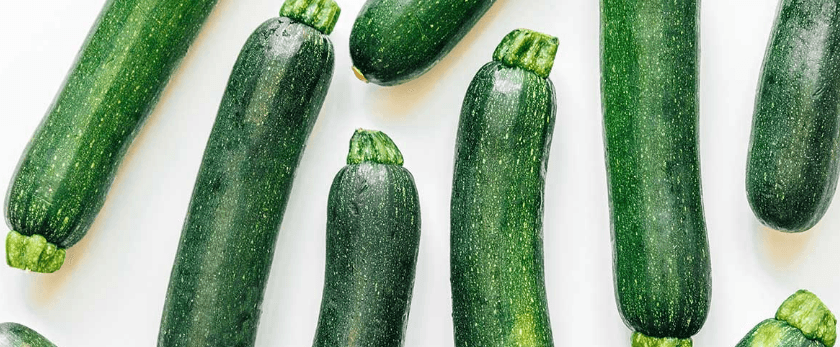Zucchini, also known as courgette, is a versatile and nutritious vegetable that can be grown in your own backyard. Not only is it easy to grow, but it also has numerous health benefits and can be used in a variety of dishes. In this article, we will discuss how to grow zucchini in a sustainable and eco-friendly manner.
Why Grow Zucchini?
Before we dive into the details of how to grow zucchini, let's first understand why it is a great vegetable to grow in your garden. Here are some reasons to consider:
- Zucchini is a low-calorie vegetable that is rich in vitamins and minerals, making it a healthy addition to your diet.
- It is a fast-growing plant, which means you can enjoy fresh zucchini in just a few weeks after planting.
- Zucchini is a versatile vegetable that can be used in a variety of dishes, from salads to stir-fries to baked goods.
- By growing your own zucchini, you can reduce your carbon footprint by avoiding the transportation and packaging of store-bought produce.
- Zucchini plants are easy to care for and require minimal maintenance, making them a great option for beginner gardeners.
Now that we know the benefits of growing zucchini, let's learn how to do it in a sustainable way.

How to Care for Zucchini
Watering
Zucchini plants require consistent watering to thrive. The key is to keep the soil moist but not waterlogged. Water deeply once or twice a week, depending on the weather and soil conditions. Avoid overhead watering, as it can lead to fungal diseases. Instead, water at the base of the plant to keep the leaves dry.
To conserve water, consider using a drip irrigation system or collecting rainwater in a barrel to use for watering your plants.
Light
Zucchini plants need at least 6-8 hours of sunlight per day to grow and produce fruit. Choose a sunny spot in your garden for planting. If you live in a hot climate, consider providing some shade during the hottest part of the day to prevent the plants from wilting.
Soil
Zucchini plants prefer well-draining, nutrient-rich soil. Before planting, amend your soil with compost or aged manure to improve its fertility. You can also add a layer of mulch around the plants to retain moisture and suppress weeds.
Fertilizer
Zucchini plants are heavy feeders and require regular fertilization to produce a bountiful harvest. You can use organic fertilizers such as compost, aged manure, or fish emulsion. Avoid using chemical fertilizers, as they can harm beneficial insects and pollinators.
Pruning
Pruning zucchini plants is not necessary, but it can help improve air circulation and prevent diseases. You can remove any damaged or diseased leaves and trim off the lower leaves to allow more sunlight to reach the plant.
What is the Best Time to Grow Zucchini?
Zucchini is a warm-season vegetable that thrives in temperatures between 70-85°F. It is best to plant zucchini after the last frost in the spring when the soil has warmed up. You can also plant a second crop in mid-summer for a fall harvest.
Common Problems with Zucchini
While zucchini is relatively easy to grow, it can face some common problems. Here are a few to watch out for:
- Powdery mildew: This fungal disease appears as a white powdery coating on the leaves and can stunt the growth of the plant. To prevent it, avoid overhead watering and provide good air circulation.
- Squash bugs: These pests can cause significant damage to zucchini plants by sucking the sap from the leaves and stems. You can handpick them or use organic insecticides to control their population.
- Blossom end rot: This is a physiological disorder caused by a calcium deficiency in the soil. To prevent it, ensure your soil has adequate calcium levels and water consistently.
Sustainable Disposal of Zucchini
Once you have harvested your zucchini, it's essential to dispose of any leftover plant material in a sustainable manner. Here are a few eco-friendly options:
- Composting: You can add zucchini scraps to your compost pile to create nutrient-rich soil for your garden.
- Mulching: Chopped up zucchini leaves and stems can be used as mulch to suppress weeds and retain moisture in your garden.
- Feeding animals: If you have chickens or other livestock, you can feed them zucchini scraps as a healthy treat.
Conclusion
Growing zucchini is a rewarding experience that not only provides you with fresh, nutritious produce but also helps reduce your carbon footprint. By following the tips mentioned in this article, you can grow zucchini in a sustainable and eco-friendly manner. So why not give it a try and enjoy the delicious taste of homegrown zucchini in your meals? Happy gardening!










